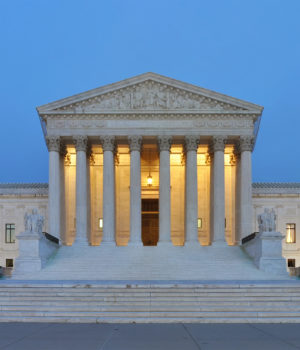Written by Joey Slusher
On Friday, September 18th, Supreme Court Justice Ruth Bader Ginsburg passed away. In her time as a lawyer and as a member of the highest court in the land, Justice Ginsburg has become known for her outspoken nature and her fight for equal rights for men and women. While her passing marks the loss of a judicial giant, and she should rightfully be mourned and have her achievements recognized, it also marks another point of political strife in our ever-polarizing political climate.
Justice Ginsburg acted as a relatively liberal Justice, particularly when it came to her rulings on equal rights for men and women and views on same-sex marriage. Prior to her passing, the Supreme Court was typically categorized as having five conservative judges and four liberals. With her passing, her seat is now open for President Trump to fill. The President and his party would likely seek to fill this spot with a more conservative judge in order to secure the Supreme Court with a strong majority of conservative justices.
This is the process as outlined in the Constitution: the President picks a nominee, the Senate has a hearing and scrutinizes that nominee, and then votes to confirm or deny their induction to a lifelong term on the Supreme Court. This process has recently become muddled though when in 2016, Republican majority leader Mitch McConnell would not allow President Obama’s nominee a hearing in the senate stating it was the right of the next president to be elected to nominate a judge to fill this seat. There were six months left in President Obama’s term.
Majority Leader McConnell has now gone back on his word and believes President Trump has a right to nominate a new justice because he has the chance of being reelected, and President Obama was termed out. Two Republicans have reprimanded the majority leader and said they will vote to bring to the floor and may not vote to confirm a Justice if a hearing takes place before the election on November 3rd. Even with these decenters, the Senate Democrats would not have enough votes to block the nomination and would need one more Republican, if not more, to guarantee a win.
The Democrats fear President Trump’s nominees may seek to overturn decisions such as Roe v. Wade which legalized abortion nationally, or the decision involving the recognition and legalization of same-sex marriage. The Democrats are now relying on two last-ditch strategies in order to block a hearing or stop a nomination.
The first is that they are hoping to delay the process to late November in order to allow for the election to pass and see if their candidate for the Senate special election in Arizona, Astronaut Mark Kelly, can win and shift the majority against the nominee. Kelly would be sworn in by November 30th and may be able to participate in a vote.
The other strategy is a threat to the Senate Republicans. Leaders in the Democratic party have threatened that if the Republicans go through with the expedited process, and the Democrats retake the Senate and the Presidency, that they would in turn nominate a number of additional liberal justices to rebalance the courts. A plan like this has not been proposed since the Presidency of Franklin Roosevelt back in the 1930s and could create a new precedent for the Supreme Court.
No matter what happens, it is clear that the election on November 3rd will serve as a referendum on a number of issues in American politics and both sides have a lot at stake.




